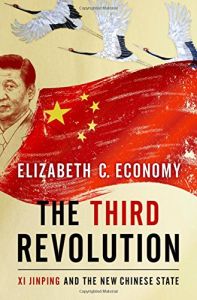
Recommendation
China grows more powerful and more interconnected with the rest of the world by the day. And yet, since Chinese president Xi Jinping’s ascent to power, the nation has become less like the liberal world order it aims to lead. In this even-handed study, China expert Elizabeth C. Economy dissects Xi’s approach to power. The new China, Economy reports, is less democratic, less open and less free, but also more ambitious and eager to assert itself on the global stage. She describes both China’s dizzying economic growth and its myriad challenges, including horrid pollution, an aging population and an inefficient government that insists on exerting control over every corner of the economy and society. Economy also details Xi’s iron-fisted approach to dissent. Unlike authors of more alarmist accounts of China under Xi, Economy writes in a neutral tone. Because of its understated style, the information relayed might leave a more lasting impression on readers. getAbstract recommends this book to anyone interested in China’s political structure and growing influence on the global economy.
Summary
About the Author
Elizabeth C. Economy is director for Asia studies at the Council on Foreign Relations. She is an award-winning author and an internationally recognized authority on Chinese domestic and foreign policy.
















Comment on this summary